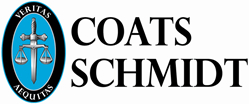SUSAN TAYLOR MARTIN | Tampa Bay Times |
“In February, a new company in Tampa called RE-710 got a terrific deal. It paid $5,700 for a five-bedroom home valued at $311,000.
The same month, RE-710 acquired control of dozens of other houses and condos throughout the Tampa Bay area for just cents on the dollar. Aside from their bargain prices, the properties had something else in common. The buyers were also the sellers: three Tampa men, including convicted fraudster Barry Haught.
According to court records, Haught and his partners created RE-710 and transferred 44 rental properties to it over three weeks. A day later, RE-710 declared bankruptcy.
The move was part of an ongoing game of real estate keep-away. The company pays for a type of short-term ownership of the properties and quickly rents them out. It then shuffles properties between companies and uses bankruptcy court to keep banks and other creditors at bay. In the meantime, Haught and his associates could continue to collect thousands of dollars in rent each month.
RE-710, so new it didn’t have employees or furniture, “concedes to having filed this (case) for the sole purpose” of delaying foreclosure, the bankruptcy trustee wrote. He also accused the company’s management of “dishonesty, incompetence and gross mismanagement.”
A lawyer for the new company says it has a reorganization plan that would be a “win-win” for everybody. But complex bankruptcy cases can drag on for months or even years, while the rental income piles up.
And the tenants? Some feel entangled in a legal but controversial type of real estate venture.
“This is a game they play and it’s sad,” tenant Nicole St. Pearre said.
During the recession, many Floridians fell behind on their payments not only to the banks but also to their homeowners associations. The HOAs, many of them struggling to keep up with maintenance and other expenses, foreclosed on thousands of homes to limit their losses. That created a lucrative opportunity for investors.
Here’s how it works: After the homeowners association forecloses, the property is put up for auction. The property title goes to the highest bidder, usually for the amount of fees owed, often just a few thousand dollars. The winning bidders don’t really own the houses but can rent them out until the banks finally foreclose and take the homes. The whole process is enabled by the glacially slow Florida foreclosure system, which takes an average of 935 days from start to finish.
While the investors rake in big profits, many of the homes languish in disrepair, causing more problems for the HOAs and discomfort for the tenants.”

